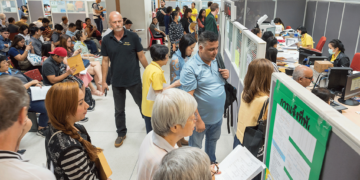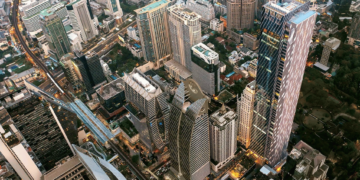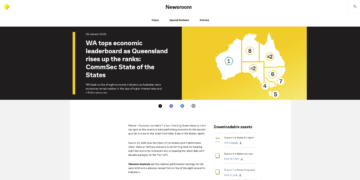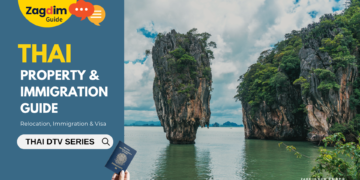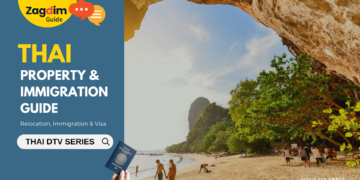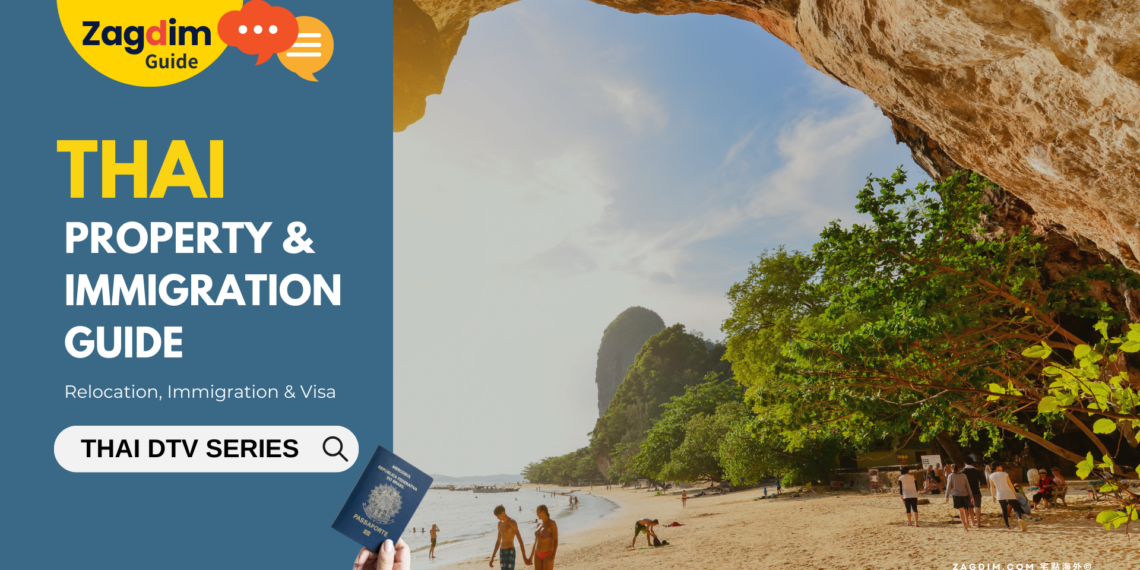Introduction: What to Expect After Getting Your DTV Visa
Many remote workers believe that securing a DTV (Digital Nomad Visa) and successfully entering Thailand means they’re all set. However, the DTV is just the first step toward long-term residency in Thailand. Once you’ve settled in, you’ll need to stay on top of several key responsibilities, including the mandatory 90-day reporting, visa renewal before it expires, and potential tax implications if you stay beyond 180 days in a calendar year.
If you plan to stay in Thailand long-term, you’ll also need to consider opening a local bank account, purchasing insurance, and understanding the penalties for overstaying. This guide will walk you through these important areas to help you manage your DTV effectively and make the most of your time working and living in Thailand.
1. 90-Day Reporting: A Must for Long-Term Residents
Regardless of the type of long-term visa you hold, if you stay in Thailand for more than 90 consecutive days, you are required to complete a 90-day report with the Immigration Bureau. Many first-time DTV holders overlook this rule, leading to fines or a negative immigration record.
You can report in person at your local immigration office or use the official online system (available in some provinces). The required document is the TM47 form, which includes your updated address and other personal details. A common mistake is failing to update your address promptly or missing the reporting deadline, which can result in fines ranging from 2,000 to 5,000 THB.
If you leave and re-enter Thailand, the 90-day count resets. To avoid any issues, it’s a good idea to note your entry stamp date or last reporting date in a calendar.
2. Visa Renewal: Extending Your DTV for Another 180 Days
A DTV is initially valid for 180 days. If you wish to extend your stay, you can apply for a 180-day extension at the immigration office, allowing for a total stay of up to 360 days. To complete the extension process, you’ll need to prepare the following documents:
- Proof of financial stability – If you initially submitted a 6-month bank statement, you’ll need to provide an updated version showing a stable balance of at least 500,000 THB or a consistent monthly income.
- Proof of residence – This can be a rental agreement or house registration document, confirming your living arrangements in Thailand.
- TM7 form – This is the official extension request form, which includes personal details and your reason for staying. The fee for the extension is 1,900 THB.
Recent changes to the DTV extension process mean that financial requirements are now more strictly enforced. If your financial situation has changed since your initial application, it’s advisable to top up your account before applying for an extension to avoid rejection or requests for additional documents.
3. Tax Implications: Staying Over 180 Days and Becoming a Tax Resident
Thailand is becoming more focused on tax compliance, particularly for long-term foreign residents. If you stay in Thailand for over 180 days in a tax year, you may be considered a Thai tax resident and required to declare your global income.
For DTV holders working remotely, any income transferred into Thailand or earned from services provided within Thailand could be subject to Thai taxation. Thailand’s tax rates are progressive, ranging from 0% to 35% depending on your income level.
If your home country has a Double Taxation Agreement (DTA) with Thailand, you may be able to reduce or avoid double taxation. However, it’s wise to consult a tax advisor before the 180-day mark to clarify your tax status and avoid issues when transferring funds or leaving Thailand.
4. Opening a Bank Account and Getting Insurance: Overcoming Common Challenges
Many Thai banks do not allow DTV holders to open an account directly. Banks often require a work permit or a non-immigrant visa, which can make it difficult for DTV holders to open a local account.
Bank Account Solutions:
If you need to open a Thai bank account, consider consulting a local service provider. To assess your eligibility, you’ll need to provide a scan or photo of your passport (including all Thai visa stamps) and allow at least three business days for processing. Fees and requirements will vary depending on your nationality, travel history, and the purpose of the account.
Health Insurance:
While Thailand does not currently require DTV holders to have health insurance, securing international health coverage that includes hospitalization, accidents, and emergency evacuation is highly recommended. The Thai government has also been considering introducing mandatory health insurance for long-term foreign residents, so securing a suitable plan in advance can help protect you from high medical costs.

5. Overstaying and Re-Entry Risks: Why Compliance Matters
Overstaying your visa can lead to serious consequences. Thai immigration law imposes a fine of 500 THB per day for overstays, up to a maximum of 20,000 THB. Overstaying for more than 90 days can result in a re-entry ban of 1 to 10 years.
Frequent border runs (using short-term visas to re-enter Thailand) are also under greater scrutiny. Immigration officers may suspect visa abuse if you repeatedly enter Thailand on short-term visas. If you plan to stay long-term, it’s best to use your DTV correctly to avoid complications.
If you anticipate any issues meeting your departure deadline, contact your local immigration office promptly. In some cases, you may be granted a short-term extension if you provide a reasonable explanation. However, overstaying without notice will result in fines and possible entry restrictions.
6. Future Planning: Transitioning to Other Long-Term Visas
While the DTV offers flexible stays of up to 360 days, some remote workers may consider switching to a longer-term visa. Options include:
- Long-Term Resident Visa (LTR): Suitable for high-net-worth individuals or skilled professionals seeking a more stable residency option.
- Elite Visa: A membership-based visa providing long-term residency and additional privileges.
- Retirement Visa (Non-O-A or Non-O-X): For those meeting the age and financial requirements.
- Non-Immigrant B Visa: If you secure local employment, you can transition to a work visa and apply for a work permit.
Switching visas often involves significant paperwork and exit/re-entry procedures, so careful planning is essential.
7. Final Advice: Stay Compliant, Enjoy Life in the Land of Smiles
The DTV is a valuable tool for remote workers seeking long-term stays in Thailand with minimal restrictions. However, to fully enjoy this lifestyle, you need to follow Thai immigration rules carefully. Staying on top of the 90-day reporting, visa renewals, and potential tax obligations will help you avoid fines and legal issues.
If you plan to settle in Thailand for the long term, opening a local bank account, securing adequate health insurance, and considering other visa options will give you greater financial and legal stability. Most importantly, avoid overstaying your visa or breaking immigration rules, as a poor record can jeopardize future re-entry or visa renewals.








